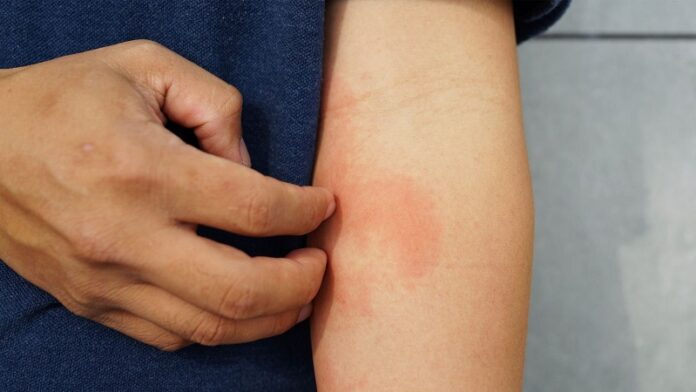Itchy skin, or as the medical community labels it, pruritus, is an irritating sensation that makes you want to scratch. As you rub or scratch the area, it gets itchier. And the more it itches, the more you scratch. Breaking this itch-scratch cycle can be difficult. Itchy skin is often caused by dry skin and is common in older adults, as skin tends to become drier with age.
However, itchiness is not limited to the elderly; if the Itching is over the whole body it could be the symptom of an underlying illness, such as liver disease, kidney disease, anemia, diabetes, thyroid problems and certain cancers. Itchy skin could also be caused by eczema (dermatitis), psoriasis, scabies, parasites, burns, scars, allergic reactions, insect bites and hives.
Scientists at Harvard Medical School in the United States have a new theory on what causes the sensation of itching, and their latest laboratory experiments point toward potentially effective treatments for people who have itchy skin, especially for those suffering from itchiness due to dermatitis, which refers to a group of conditions that cause inflammation — eczema is a form of dermatitis.
In a study published in October, researchers reported that directly exposing the skin of mice to the common bacteria Staphylococcus aureus (S. aureus) triggered the nervous system to send signals from the skin to the brain. Lab experiments were also conducted using human cells. S. aureus is a common bacteria, with nearly a third of the global population carrying the bacteria in their nose or skin.
The previously held theory was that itchiness stemmed from inflammation caused by skin conditions. However, the new study identifies an entirely novel mechanism behind the ‘itch’. The study shows that in people who have eczema or dermatitis, the balance of microorganisms that keeps skin healthy is disrupted, potentially making them more susceptible to S. aureus. The mice that were exposed to S. aureus developed intensifying itchiness for several days, and they also developed an itch-scratch cycle that eventually resulted in damage to sites beyond the itch.
A bonus finding from the study was that the researchers were able to block the nervous system’s process that results in the itching sensation by using a medication that is usually prescribed to help people who have problems with blood clots. This incidental discovery suggests that the same medication could also be repurposed as an anti-itch treatment. The researchers now plan to explore whether other microbes beyond S. aureus can trigger an itch in people.

















